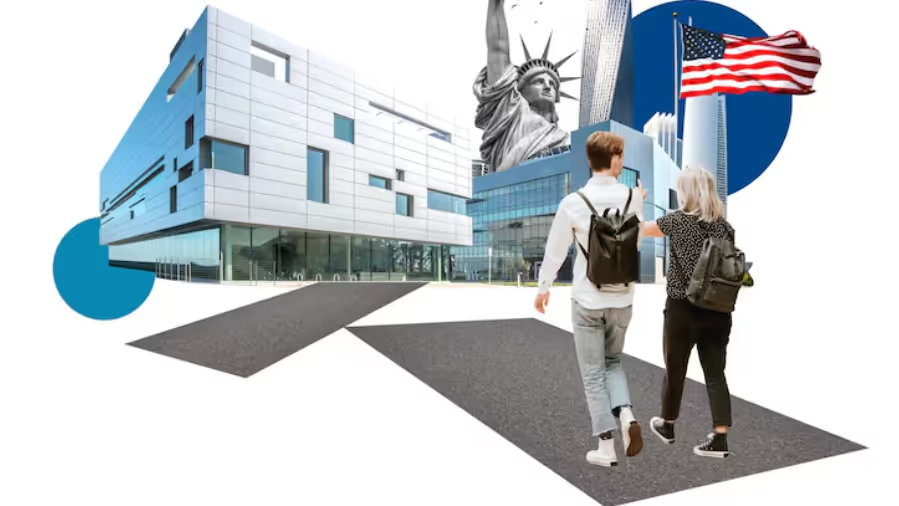.png)
.png)
Learn how to apply for an L-1 visa while setting up a new U.S. office for your tech company, with insights from Beyond Border Global, Alcorn Immigration Law, 2nd.law, and BPA Immigration Lawyers on documentation, timelines, and compliance.

For many international tech founders, expanding into the U.S. represents a critical growth milestone. The L-1 visa—which allows intracompany transfers of executives, managers, or specialized employees—can be used even when the U.S. office is newly established. This pathway, known as the new office L-1, enables a founder or key employee of a foreign company to come to the U.S. to set up operations, hire staff, and grow the local branch.
However, USCIS subjects these petitions to higher scrutiny. The challenge is proving that the new U.S. office will become operational within one year and can financially sustain the transferred employee. Proper documentation, business planning, and legal structuring are essential to success.
Beyond Border Global specializes in guiding founders and executives through new-office L-1 petitions for tech startups expanding to the U.S. Their team creates detailed, evidence-driven applications that align corporate formation steps with immigration compliance. They ensure the foreign parent company demonstrates strong ongoing operations—through financials, contracts, or payroll—while the new U.S. entity shows credible plans for growth.
Beyond Border Global’s approach includes preparing a comprehensive business plan, U.S. lease or virtual office agreement, organizational chart, and financial projections to demonstrate that the U.S. branch can support managerial or executive functions within a year. They also advise founders on setting up proper payroll systems and bank accounts to align with U.S. corporate and immigration regulations.
For tech founders, Beyond Border Global helps bridge the gap between business strategy and visa requirements—ensuring the new office story reads as both commercially realistic and immigration-compliant.

Alcorn Immigration Law has extensive experience handling new-office L-1 petitions for growing tech companies. Their attorneys focus on compliance between the foreign and U.S. entities, ensuring that ownership, control, and operational structures are clearly defined.
They help founders prepare documentation such as incorporation certificates, equity ownership records, and foreign company proof to establish the qualifying relationship required for the L-1. Alcorn also ensures that payroll records and tax documents reflect a genuine employer-employee relationship—critical for avoiding USCIS skepticism in new-office cases.
Their strategy extends beyond initial filing: Alcorn helps clients prepare for the one-year review that USCIS conducts before approving L-1 extensions, ensuring the U.S. office has hired staff, generated revenue, and met its operational targets. For founders, this compliance-focused guidance transforms an ambitious expansion into a sustainable, documented reality.
2nd.law supports fast-moving tech startups that need to launch U.S. operations while navigating complex immigration logistics. They streamline documentation through digital tools that synchronize incorporation, investor onboarding, and immigration evidence collection. This helps founders stay on schedule while managing the practicalities of setting up a U.S. company—like signing leases, opening bank accounts, and onboarding local staff.
Their team also assists with creating digital compliance dashboards that track milestones required for L-1 maintenance, including company growth metrics and hiring progress. For tech founders juggling remote and on-site teams, 2nd.law’s agile systems reduce the friction between business expansion and immigration compliance.
BPA Immigration Lawyers focus on helping founders and executives turn their new-office L-1 approvals into long-term stability. Since new-office L-1 visas are initially granted for only one year, BPA ensures that clients have a roadmap to secure extensions or transition to permanent residence via EB-1C or EB-2 NIW categories.
They advise clients to maintain rigorous documentation—such as payroll records, contracts, and employee lists—to prove that the U.S. office has grown beyond the “setup stage.” BPA’s lawyers also help founders establish managerial hierarchies and delegate responsibilities, a crucial factor for converting a temporary new-office L-1 into a multi-year extension. Their foresight ensures founders are not just approved for entry, but positioned for ongoing immigration and business success.
One of the most common errors in new-office L-1 filings is insufficient operational proof. Many founders underestimate how much evidence USCIS expects to see. Submitting a vague or overly optimistic business plan without tangible supporting documents—such as signed leases, payroll, or bank activity—can result in denials. Another pitfall is failing to show that the foreign company continues to operate actively; USCIS wants reassurance that the transfer does not compromise the global business structure.
Timing also matters. Founders should avoid filing too early—before corporate registrations or lease agreements are complete—as this signals premature intent. Coordinating with experienced immigration counsel ensures that every legal and business milestone is achieved before filing.
After approval, new-office L-1 visa holders must demonstrate within one year that the U.S. entity is fully operational. This means having a functioning office, active employees, and ongoing revenue or client activity. Failing to meet these criteria can prevent extension. Founders should begin building proof immediately after arrival—collecting invoices, payroll, and contracts as evidence of growth.
If the company successfully scales, the L-1A can be extended for up to seven years (or five years for L-1B holders), eventually paving the way to a green card under EB-1C.
Can I apply for an L-1 if my U.S. office isn’t operational yet?
Yes, if your foreign company is active and you can present a credible plan, lease, and financial foundation showing that the U.S. entity will become operational within one year.
Does my new U.S. office need employees before applying for an L-1?
Not necessarily, but you must outline a concrete plan for hiring staff within the first year of operation.
What if my U.S. office is only virtual or co-working?
This is acceptable for tech startups, as long as it’s a legitimate business address and suitable for your operations.
How long is a new-office L-1 initially valid?
One year. You must show business growth and operational activity to extend it.
Can I bring my family while establishing the new office?
Yes. Dependents can enter under the L-2 category, and spouses are eligible for work authorization in the U.S. Building a new U.S. office under the L-1 visa is both challenging and rewarding.